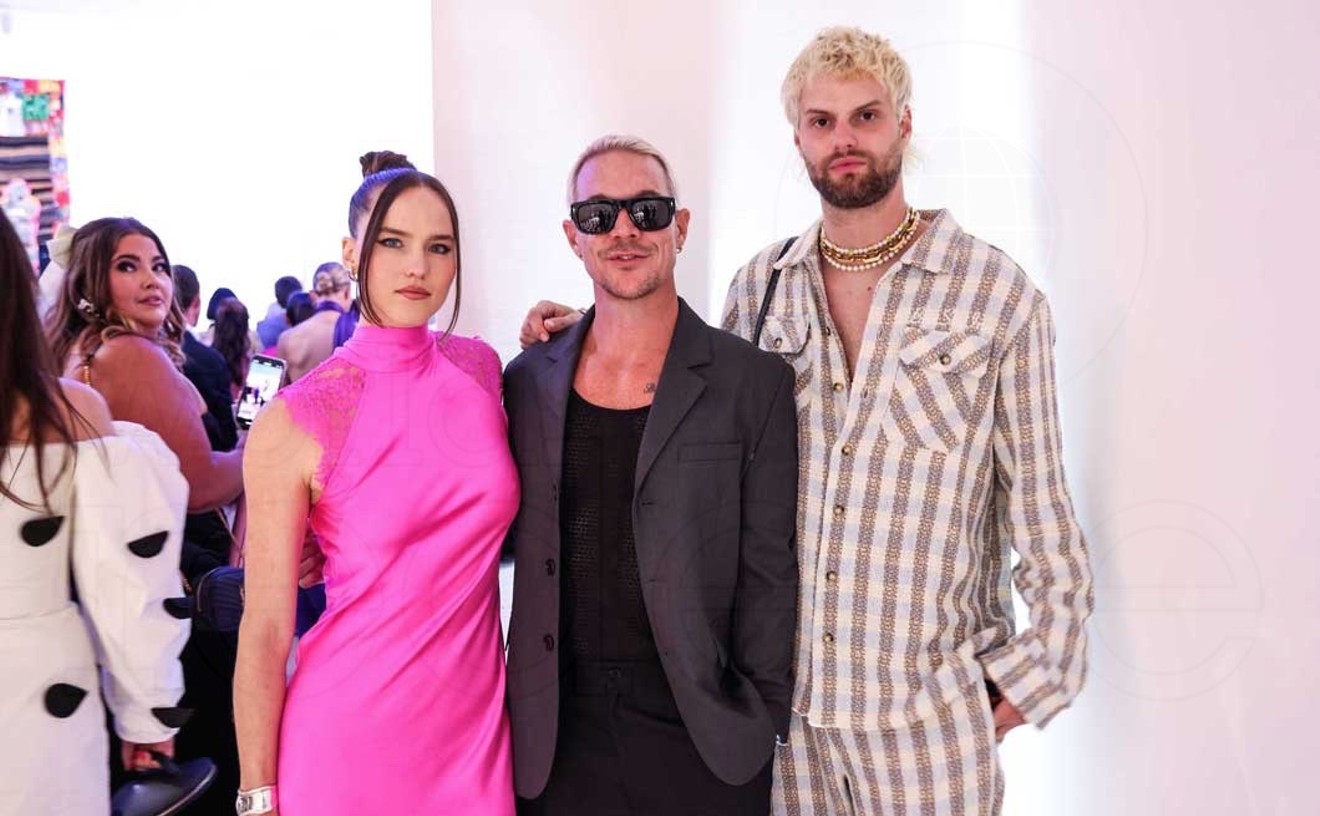The opening of local painter Farley Aguilar's "Invisible Country" at Spinello Projects' new space in Little Haiti couldn't have happened at a more opportune time. With the presidential campaign season well underway, the most discernible trend in the debates and speeches has been a populist wave — whether it's Donald Trump or Bernie Sanders on the soapbox.
Aguilar's paintings are caught between past and present, sourced from old photographs and posed artificially. Harking back to the work of social realists such as Ben Shahn, whose harsh paintings underscored the realities of working-class American immigrants in the first half of the 20th century, Aguilar's art is resolutely of the people.
The artist can't help but interject himself into each of his paintings. Though figurative, the characters in his works have a deranged circus quality. The figures are dehumanized, their faces obscured behind wild shapes.They belong in a vivid nightmare rather than a realistic portrait. In some of the canvas pieces, the abstract nature comes to the forefront, where the artist has scribbled epithets in pencil.
Aguilar is known for his blend of social realism and abstraction. For "Invisible Country," he was specifically inspired by the work of postmodern Italian writer/poet Italo Calvino, whose 1972 novel Invisible Cities captured the mix of surrealism and poststructuralism that was taking shape in Europe at the time. In his book, Calvino argues for a world where people must choose whether to actively destroy or live in constant vigilance.
It seems that Farley's characters are numbed into acceptance.
Drawn to a sense of social consciousness and responsibility, Aguilar can't help but also be influenced by the postmodernist movement. He has distinguished himself as a painter with a profound point of view, but whether the changes he sees will come forth is a matter for the onlooker to decide.
Farley Aguilar's "Invisible Country"
Through March 9 at Spinello Projects (7221 NW Second Ave., Miami). Visit spinelloprojects.com.
[
{
"name": "Air - MediumRectangle - Inline Content - Mobile Display Size",
"component": "19274298",
"insertPoint": "2",
"requiredCountToDisplay": "2"
},{
"name": "Editor Picks",
"component": "17482312",
"insertPoint": "4",
"requiredCountToDisplay": "1"
},{
"name": "Inline Links",
"component": "18711090",
"insertPoint": "8th",
"startingPoint": 8,
"requiredCountToDisplay": "7",
"maxInsertions": 25
},{
"name": "Air - MediumRectangle - Combo - Inline Content",
"component": "17482310",
"insertPoint": "8th",
"startingPoint": 8,
"requiredCountToDisplay": "7",
"maxInsertions": 25
},{
"name": "Inline Links",
"component": "18711090",
"insertPoint": "8th",
"startingPoint": 12,
"requiredCountToDisplay": "11",
"maxInsertions": 25
},{
"name": "Air - Leaderboard Tower - Combo - Inline Content",
"component": "17482313",
"insertPoint": "8th",
"startingPoint": 12,
"requiredCountToDisplay": "11",
"maxInsertions": 25
}
]











